Q&A with Building Belonging Fellows
Learning about the student experience in the Building Belonging Program
By Karina Diaz Alvarez, CUIP Intern for the Institute for Social Transformation
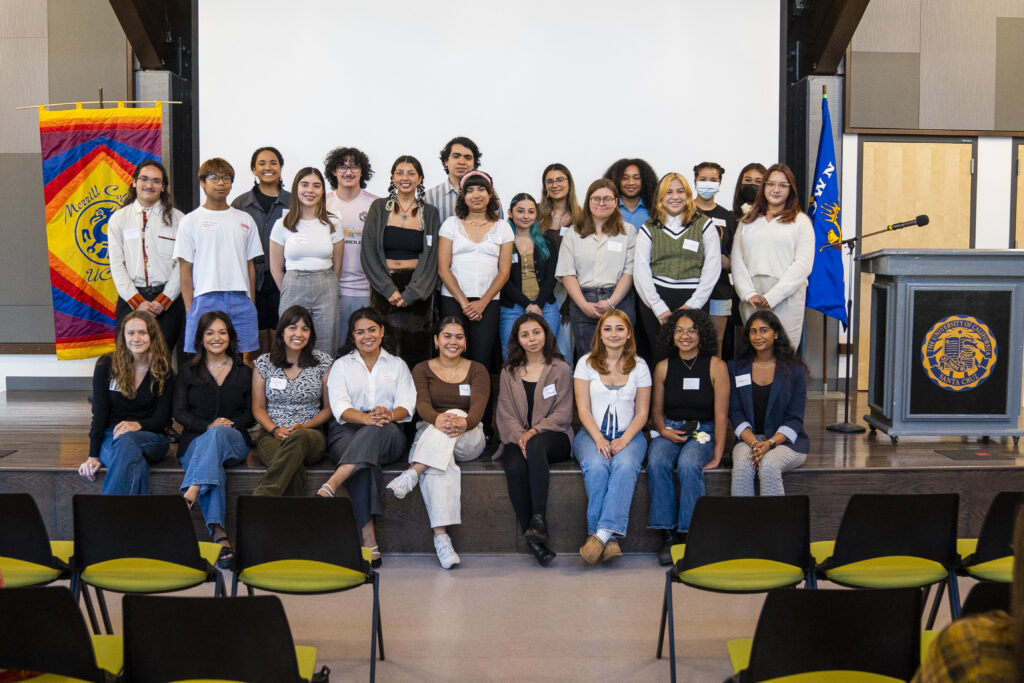
As the Chancellor’s Undergraduate Internship Project (CUIP) for the Institute for Social Transformation, Karina Diaz Alvarez wanted to learn more about the students who are engaged in the Building Belonging Program. Karina, a psychology and legal studies double major, centered her internship project around elevating student voices and highlighting their experiences in the program. Karina interviewed a small sample of students, collecting their testimonials and diving deeper into their incredible projects.
The Building Belonging Program was developed by the Institute for Social Transformation, aiming to promote a sense of belonging for underrepresented students within a research university environment.
Students have the opportunity to work with a faculty member to craft and conduct research projects that fall in line with their passions and career goals. Up to 100 students are supported per year, creating a stronger connection between students, faculty, and research.
Meet the Students!


Maria Soto’s Project
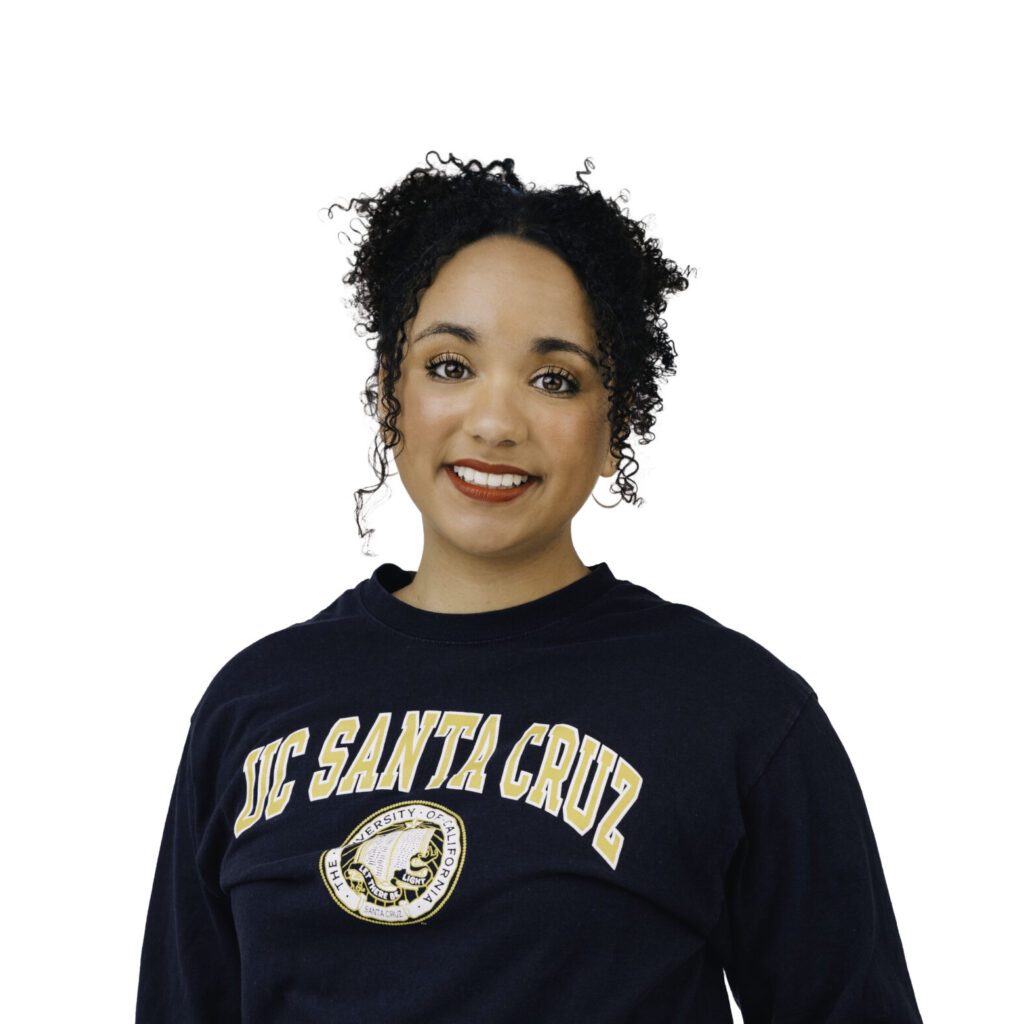
Project Title:
Education’s Surveillance Quandary: Exploring the cost vs. convenience of post-COVID technology application
Faculty Mentor:
Nolan Higdon
Project Background:
In her team, Maria Soto focused primarily on finding historical instances of censorship in the classroom. She also looked for a set point in time, or consistency throughout the US on the policies that have been put in place that either supported or loosened surveillance in schools. Surveillance existed then and still exists now with the use of ProctorU and similar online proctoring methods, which have been protested against by UCSC students in 2021.
Takeaways:
From this project, Soto got to understand the larger picture. She realized that it’s easy to see things that are happening now and feel upset, but also learned that this behavior is not unprecedented and has existed for a long time. As Soto says: “The ways we can react to it can really make a difference.” This project also taught her how to find well-hidden information and become a better investigator overall. Soto is very interested in going into education and plans on starting as an English language teacher. She hopes to ultimately be on the administrative side of things, such as curriculum and policy making.


Gabriella Garcia’s Project
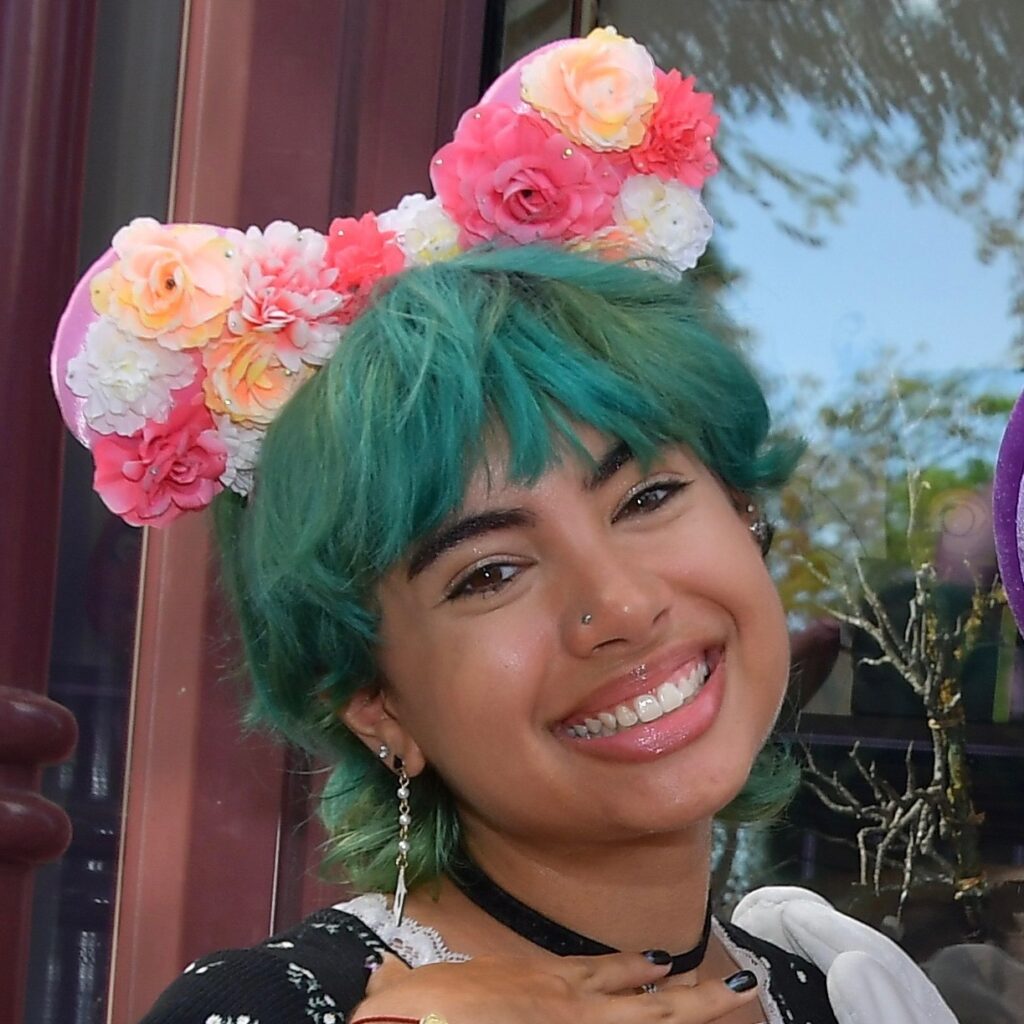
Project Title:
Gen Z, Social Media, and Visibility: Navigating the Intersections of Gender and Sexuality
Faculty Mentor:
Adriana Manago
Project Background:
Gabriella Garcia was interested in understanding the nuances in people’s identities, as well as the morals and values that are associated with identity labels and the reasoning behind using these labels. This stemmed from Garcia’s realization that the nuances of intersectionality were rarely talked about and this kind of research was never done. As a result, took matters into her own hands and explored the ways intersectionality in gender and sexuality appeared within social media.
Takeaways:
Before her project, Garcia always had the idea that research was all about “men with white coats” and it didn’t extend beyond the sciences such as biology or chemistry. Now, as she leads her own project, she recognizes that she is no longer a research assistant but rather a researcher, proving that it’s not just men in lab coats that can conduct impactful research. This experience also made her plans to go to grad school look much clearer and she’s excited to conduct more research in the future now that she has the skills to do so.


Azarely Bedolla’s Project
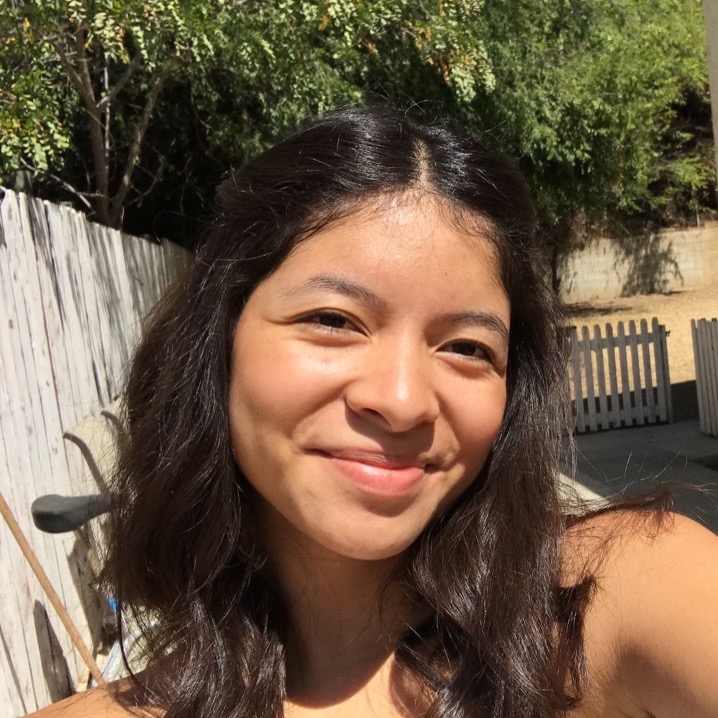
Project Title:
Building Capacity for Mitigating the Climate Crisis: Drought resilience in Joshua trees
Faculty Mentor:
Michael Loik
Project Background:
Azarely Bedolla’s responsibilities for this project during Fall quarter consisted of helping to take photosynthetic measurements on the Yucca tree leaves and measuring leaf thickness and leaf area. She would weigh a group of plants on given dates as well as weigh each plant and record the data on spreadsheets. She has also been measuring the water potential of leaf tissues, which meant preparing the sample and carrying out measurements. She would go up to the greenhouse to select leaves and prepare the samples in the lab, measure the mass, prepare and calibrate the WP4 machine that would provide us with readings on the change in water potential of the leaves.
Takeaways:
This project really allowed Bedolla to put her learning into practice and in turn, helped her understand the processes better. Measuring the water potential of a leaf tissue with equipment also helped her understand how samples are processed to determine such things. Overall, this experience has made her feel like she’s truly in the research community and feels a sense of pride for the work she has been able to conduct.


Mia Laskan’s Project
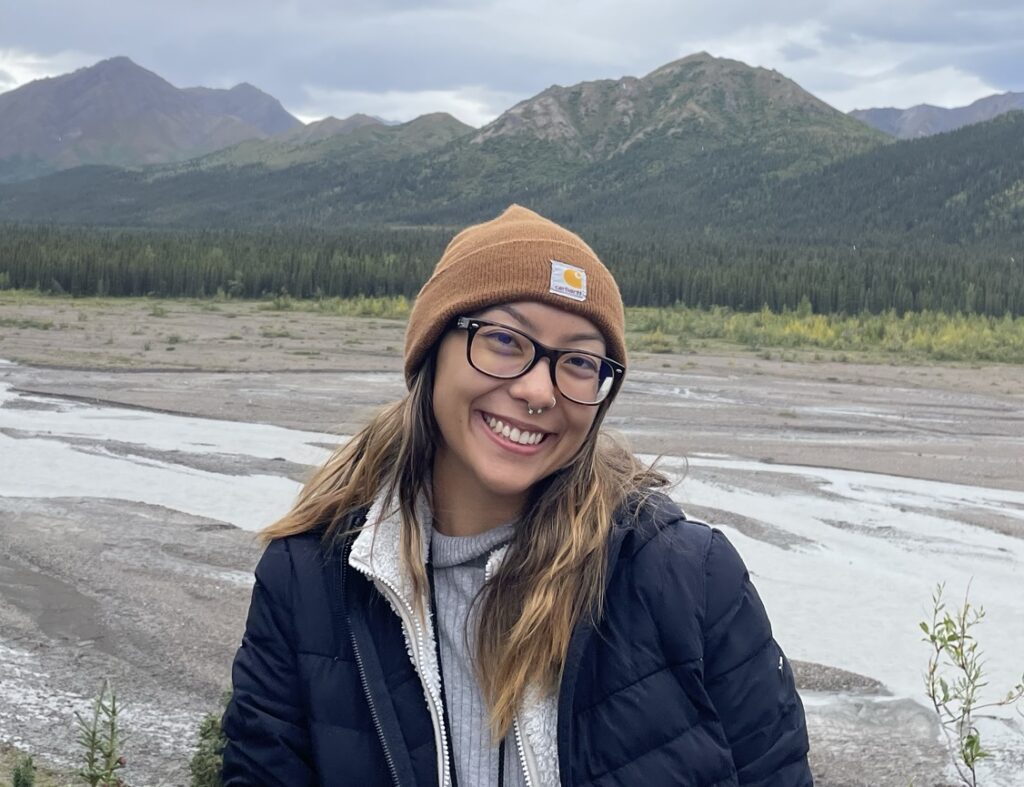
Project Title:
EEG Replication Project
Faculty Mentor:
Liv Hoversten
Project Background:
Mia Laskan had the chance to conduct an EEG replication project and her responsibilities included: helping code and debug the program, creating trigger words, assisting with set-up and clean-up with EEG caps and electrodes, reading and understanding EEG/ERP data, splicing recordings, as well as recording data.
Takeaways:
From the beginning, Laskan found a lot of joy in the process and appreciates how she, as an undergraduate student, was able to work in the lab longer than graduate students have. During this time, she was able to see and learn firsthand about what it takes to create the lab, the experiments, the community, and the foundation necessary to build upon as the lab progresses. That sort of information and experience allowed her to understand the background nuances of research, rather than just participating in data extraction. These experiences helped her grow as a potential researcher as she was exposed to every aspect, even the not-so-fun aspects, of research.


Sophia Partida’s Project
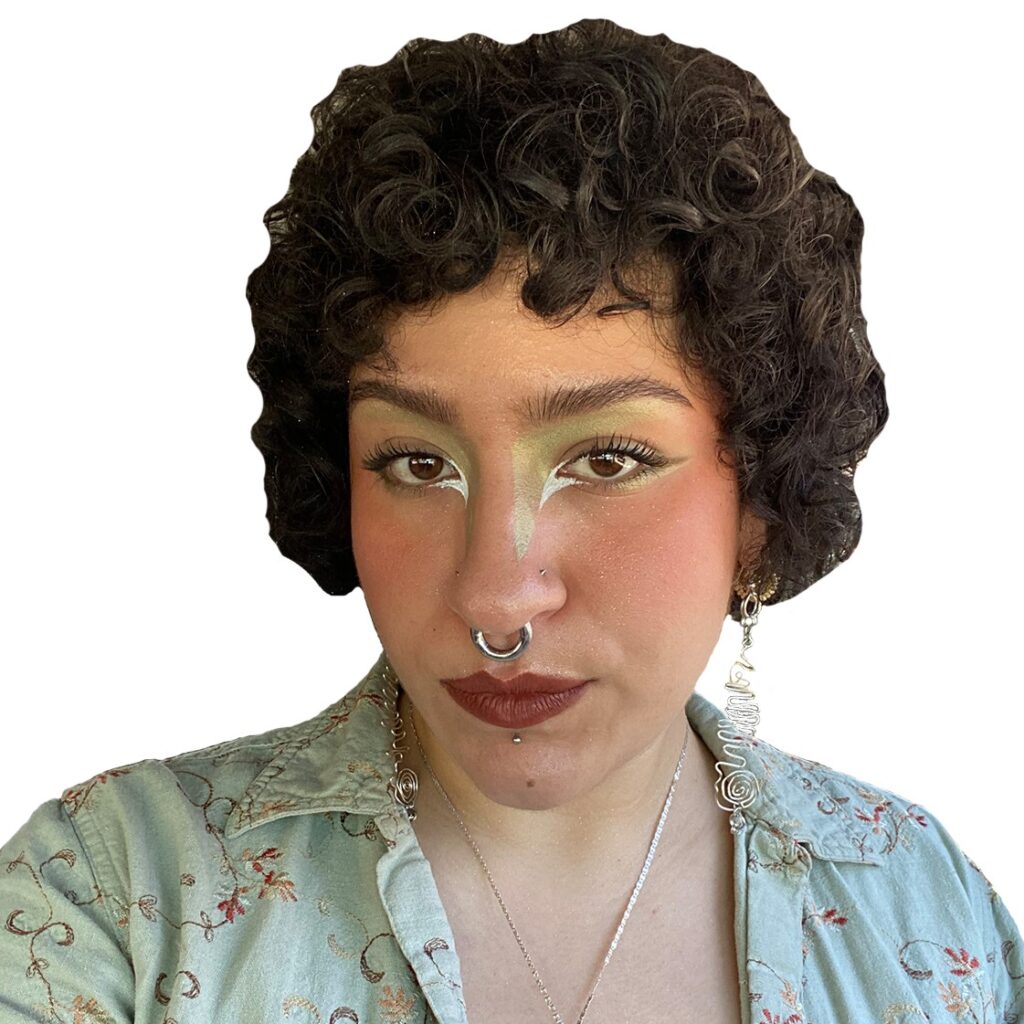
Project Title:
Educational Enclosures and the Digital Divide
Faculty Mentor:
Roberto de Roock
Project Background:
Along with her team, Sophia Partida’s project was centered on how digital technology plays a role in the classroom, both in aiding to reduce marginalization as a result of racial and socioeconomic divides. Partida also explored how this divide grows due to marginalization by increased surveillance and criminalization. The team’s goals were to better contextualize the idea of technology functioning as a solution to issues of education equity in U.S. schools. Additionally, they hoped to further understand how digital technology intersects with the mechanics of marginalization and create an outline of the possibilities that alternative approaches and visions offer.
Takeaways:
This research experience taught Partida how to take more initiative in the investigation aspect of conducting research. She appreciates that the mentor she got to work with was very generous with the amount of creative freedom that her and her team were given as research assistants.


Lizeth Calderon’s Project
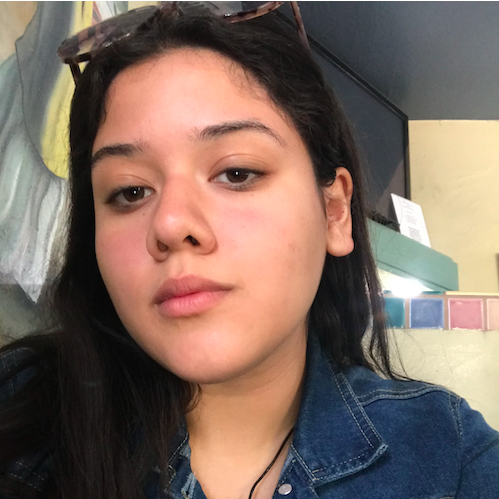
Project Title:
The “Hot Cheeto Girl”: Gender Performance and Latina Mobility
Faculty Mentor:
Julie Bettie
Project Background:
Lizeth Calderon worked with her team to focus on the “hot cheeto girl”, which targets the Latinx community. The team worked on analyzing TikTok data which, through the creators, has created a big image on how society perceives the low-income Latina “Hot-Cheeto girl” aesthetic.
Takeaways:
For Calderon, this experience was one of her most interesting and her biggest takeaway was how research is about overthinking and eventually concluding with a concrete idea in which you have evidence to back it up. This research has allowed her to conduct hands-on research that’s based on her community and brings light to related issues.


Alcides Fuentes’ Project
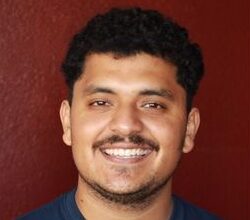
Project Title:
Building Research Capacity in Global Environmental Justice
Faculty Mentor:
Ravi Rajan
Project Background:
Branching from the environmental justice work his family does in El Salvador, Alcides Fuentes worked with young climate activists of color throughout Latin America to capture their stories surrounding the challenges they’ve faced in regards to organizing in their area of origin and how the people of power in their respective area responded to them. The goal of Fuentes’ research was to show that people in America have a different idea of what climate organizing looks like than people in Latin America, “who often times are placed in the frontlines of areas where an environmental injustice might be happening”.
Takeaways:
Fuentes wasn’t totally sure where this project would end up, but as he built it, he really grew as a researcher with skills like transcribing interviews and effective time management. He hopes to connect his educational and climate activist experience with his creative skills in digital media art to ultimately become a prominent environmental justice leader. Fuentes says: “In short, I want to spend my life bringing out radical, and sustainable social and environmental change so that we may have a better world for future generations to come”.


Dmitrius Rodriguez’s Project
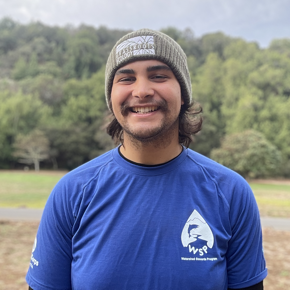
Project Titles:
Climate Risk and FDI
Barriers to Adopting Healthful Diets Across Cultural and Socio-Economic Groups
Faculty Mentor:
Galina Hale
Project Background:
Dmitrius Rodriguez had the chance to work on two projects with Dr. Galina Hale. In their first year in the Building Belonging program, they created and administered a study on what influences UCSC students’ food choices. For this first project, they worked on creating/brainstorming the survey, conducting interviews with students, and working on a Literature Review. For their second project, they worked with Dr. Hale and Dr. Grace Gu on a working paper that focused on whether the changing environment, measured by disastrous environmental events, affects the flow of Foreign Direct Investment (FDI) from multinational corporations. Throughout this project, they worked on data cleaning, which helped with the literature review, and brainstorming.
Takeaways:
Throughout their time as a Building Belonging Fellow, they learned a lot about how to use the skills they learned in this role and got to really learn about the research process. One of the biggest lessons they learned in this fellowship was that the unique set of skills and characteristics that they brought to the table had meaning. They felt that even though not all of their skills applied to a project with strong coding techniques, they were still able to learn a lot and participate in conversations that forced them to understand the skill a lot more. On the other hand, working remotely on a behavioral science project, during the height of the Covid-19 shutdowns, allowed them to shine while doing interviews and be a part of a comfortable and professional research group space, after classes. They also were able to make lasting connections with the people that they worked with, and felt belonging in the fact that their work doing research had monetary value. For Rodriguez, it was important to feel that connection because passion only drives a cause so far. Being a student who worked throughout Junior College and University, the same drive that they applied to their part-time jobs, they also put towards the Building Belonging Fellowship.
Thanks to the generous donors who fund this program, the Institute is able to offer stipends that are accessible to all undergraduate students, even those without work authorization. The program aims to support undergraduate students who are: EOP eligible, first-generation, low income, under-represented, undocumented, or former foster youth. This opportunity helps alleviate costs that may get in the way of students’ decision to take on a research project, which for many is their first time!
Learn more about the Building Belonging program here: transform.ucsc.edu/funding/building-belonging


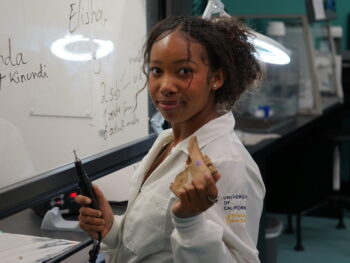
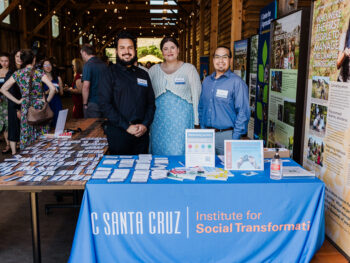
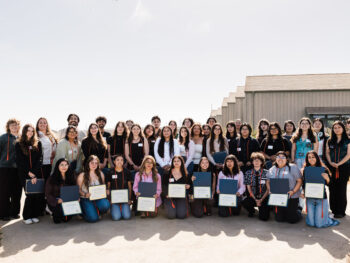
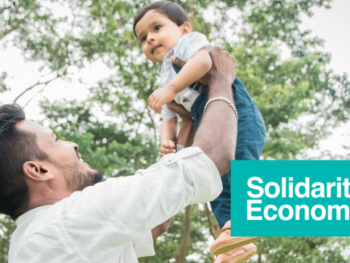
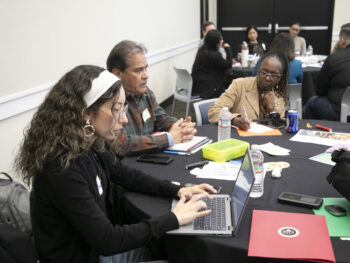
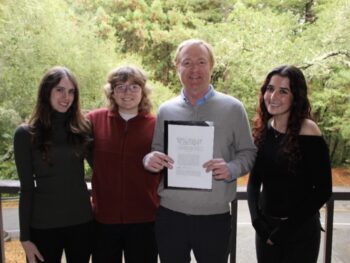
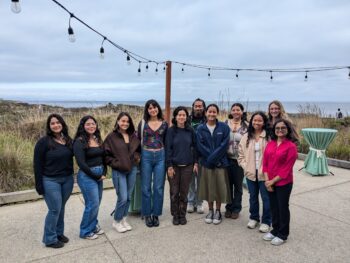
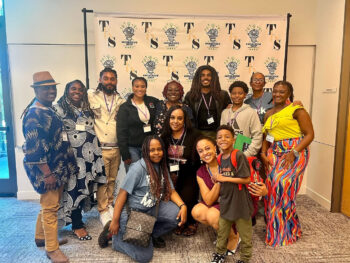
 Building Belonging Student Showcase 2023
Building Belonging Student Showcase 2023
